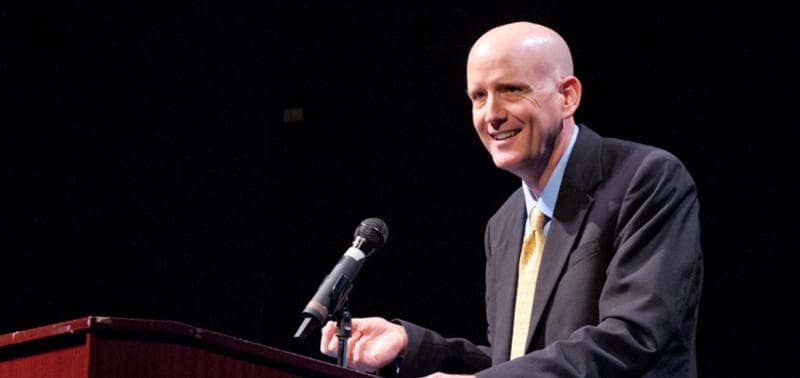In this post
Daniel Willingham’s research focus is also on cognitive development. He asks questions about how children’s development can be encouraged, and as well as coming up with his own theories about development, he also identifies issues with other people’s research including Piaget’s Three Mountains task, which we will look at in the next section.
Factual knowledge precedes skill
In order for children to make sense of some information, it is important that they have knowledge of what the information is referring to, which is why having existing knowledge can be useful. For example, if a child is reading a book which contains the phrase ‘he moved around the harbour to try and see…’, the child needs to know what a harbour is in order to make sense of what they have read.
When we come across something we don’t understand, we have to take time to think about this and use a lot of mental processing to come to a decision. Much of this work takes place in our working memory, which has a limited capacity for information, and so freeing up some of the space in working memory enables us, according to Willingham, to solve problems and further understand things. For example, the existing knowledge that a head injury can be fatal, helps someone to understand why some sportspeople wear head protection.
The importance of practice and effort
Willingham places great emphasis on the fact that practice and effort are vital in enabling us to master skills and obtain greater knowledge. In order to be able to do something without thinking about it (such as tying shoe laces) we must have carried the act out enough times to be proficient at it and we must keep the skill up to enable us to continue to use it effectively (use it or lose it!)
In our short-term memory we are able to rehearse information enough times so that it is eventually transferred to long-term memory where it ‘sticks’ and is stored until we need to use it again. Willingham wants children to utilise their ability to rehearse things so that the information they need in order to carry out a particular skill needs no thought and is automatic. Reading is a good example of this – it takes no conscious thought and therefore room in working memory is freed up for other things, such as problem solving.
Willingham also proposed that in order for specific areas of development to occur, there must be strategies in place to help children learn in each of these areas.
Strategies to support cognitive development
- New problems will help to stretch children’s problem-solving skills but these should not be too difficult for their ability
- Teachers should be aware of developmental milestones when they are planning lessons and activities
- Children’s abilities are not totally fixed and can change from day to day
- Ensure children understand exactly what they are being asked to do so that this does not become a reason for them being unable to complete it
Strategies to support physical development
According to Willingham, children’s motor skills (those which involve physical movement) also need to be developed and he suggested several strategies to enable this, keeping in mind that muscle movements are directly related to brain processing:
- Focus on the order in which movements need to be carried out for optimum effect
- Movements should be practised enough times for the body to remember them – i.e. that the muscle commands become automatic
- Make conscious efforts for improvement, such as swimming an extra fifty metres or raising a high jump bar by five centimetres
Strategies to support social development
Social development is a key aspect of how a child grows up as it determines their ability to fit into their society and to obey its societal norms, such as queuing or taking turns in conversation. Willingham suggested that teachers could help children’s social development in a variety of different ways:
- Help children, from very young ages, to see things from the point of view of others. Willingham believed this can happen as young as 18 months old and so it should be built on from this age so that children develop suitable helping behaviours
- Be a good role model and demonstrate appropriate social behaviour – children learn by observing and imitating others (known as social learning)
- Encourage self-regulation, where children are responsible for their own actions. This means that even though they would rather be doing something else (such as playing outside with their friends) they do their homework because they know that it has to be done and this is the right thing to do
- Help children to control impulsive behaviour that may mean that they make an inappropriate decision. Children whose behaviour is not impulsive are more likely to make stronger friendships because they are better able to have suitable responses in social situations, such as helping another child who has fallen over instead of laughing at them
Strengths of Willingham’s theory
- There are a lot of practical applications of Willingham’s work, which can be used by teachers (and others) to promote positive child development
- His arguments, especially about egocentrism, did match those of Piaget who later conceded that children could in fact see the viewpoint of others from a much younger age than he originally proposed
- Much of his work was carried out in a controlled environment, which enables researchers to see what precisely is causing a change in behaviour
Weaknesses of Willingham’s theory
- Experimental research lacks ecological validity, which means that results may not be the same in a real-life situation
- Willingham seems to fail to account for individual differences in learning, believing that strategies can be applied to all children to enable skill and knowledge development. For example, he suggests that self-regulation may be accounted for by genes and is not therefore something that is easily changeable
- His work draws on many theories and whilst this is, to some extent, a strength, it might also be argued that his data is not easy to test, which is a potential weakness



